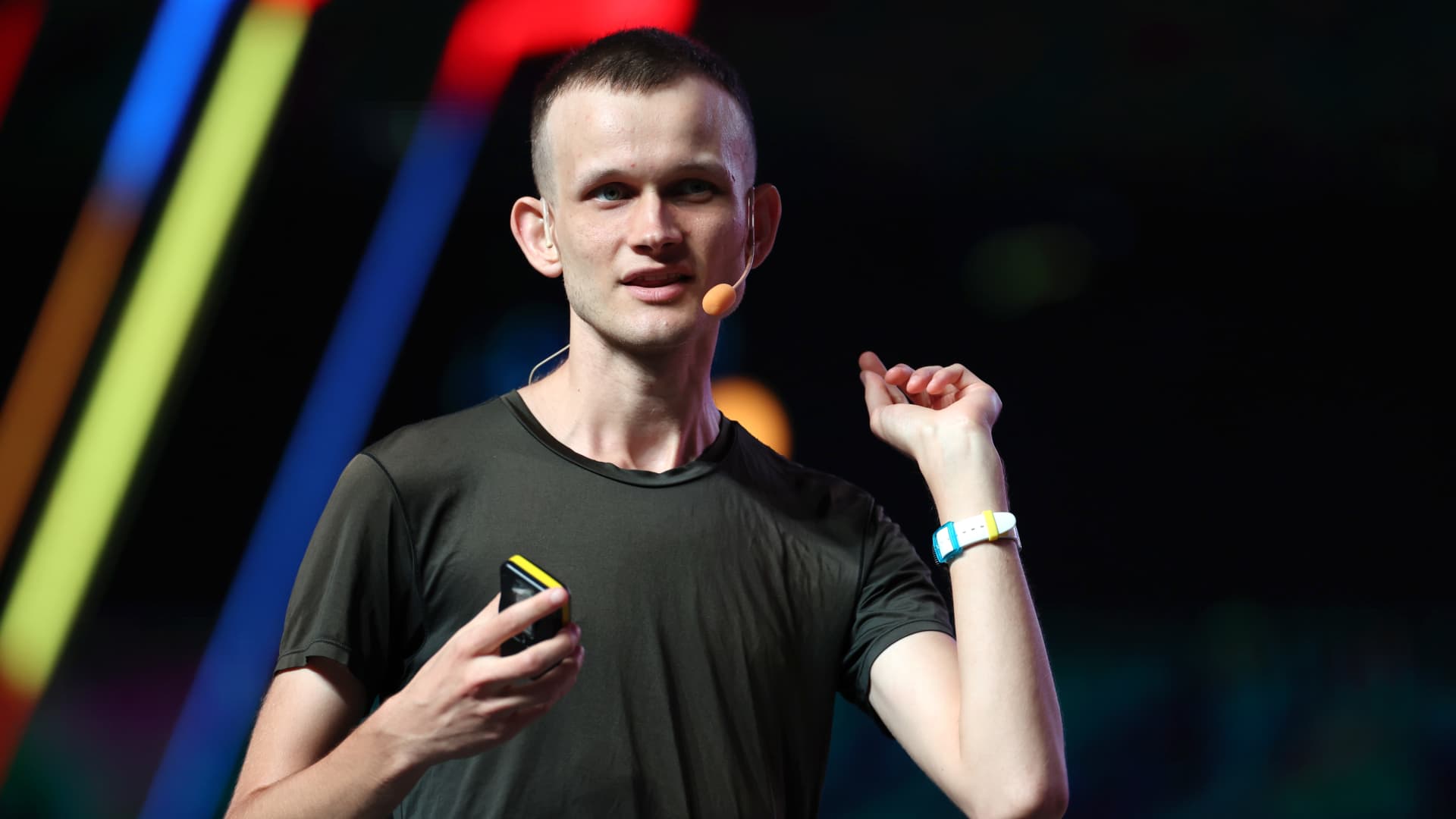Ethereum cofounder Vitalik Buterin sends $1 million worth of Ether to Coinbase, sparking speculation about his intentions and potential impact on the cryptocurrency's value.
Vitalik Buterin, co-founder of Ethereum, transferred 3,000 ETH ($4.9 million) to an unknown address, possibly to diversify and secure his funds, following previous transfers totaling about $6 million in ETH.
Ethereum co-founder Vitalik Buterin has sold his MKR tokens and earned around $581,000 in ETH, leading to speculation that the sale was in response to the MakerDAO founder's positive comments about Solana's blockchain.
Ethereum co-founder Vitalik Buterin believes that node centralization is a major challenge for Ethereum, and while the perfect solution may take another 20 years, making running nodes cheaper and easier is crucial to ensure decentralization.
Ethereum's price has been declining, leading to concerns among investors, but there are two factors to consider: a drop in user activity and transaction volume on the Ethereum blockchain, which may be due to users migrating to faster and cheaper Layer 2 blockchains, and selling by Ethereum "whales" and insiders, including co-founder Vitalik Buterin, which could be attributed to profit-taking and security measures rather than a lack of confidence in Ethereum's future prospects. Despite the market's overreaction, Ethereum remains a strong investment with its dominance in various business segments and ongoing development plans.
Ethereum co-founder Vitalik Buterin has published a research paper proposing privacy pool systems that use zero-knowledge proofs to allow users to prove dissociation from illicit funds, potentially enabling financial compliance on-chain in the future.
The Twitter account of Ethereum co-founder Vitalik Buterin was compromised, resulting in victims losing over $691,000 through a malicious link that falsely promoted a free NFT.
Teams in Asia are increasingly playing a significant role in the development and research of cryptocurrency technology, particularly in the areas of exchanges, mining, and innovation in smart account crypto wallets, according to Vitalik Buterin, co-founder of Ethereum.
A member of Hong Kong’s Legislative Council, Johnny Ng, has invited Vitalik Buterin, the co-founder of Ethereum, to visit Hong Kong to better understand the region's crypto-friendliness, in response to Buterin's comments questioning the stability of Hong Kong's friendliness towards cryptocurrencies.
Ethereum co-creator Vitalik Buterin says that central bank digital currencies (CBDCs) have become "front ends" for the traditional banking system instead of being blockchain-friendly with transparency and privacy features, making them even less private and breaking down barriers against corporations and the government. He believes that Ethereum may be more resistant to government interference with its proof-of-stake consensus mechanism.
Ethereum co-founder Vitalik Buterin has been transferring Ethereum to centralized exchanges, signaling potential sales preparations, as the price, on-chain activity, and sentiment for Ethereum have been decreasing, with analysts predicting further downsides for the cryptocurrency.
A prominent crypto venture capitalist names Bitcoin, Ethereum, Solana, Cosmos, and Celestia as the core blockchain networks in the digital asset space, each with its own defining characteristic.
The recent hack on various decentralized platforms has revived the debate on the true meaning of decentralization in the crypto industry, with some claiming that the term is often used as a buzzword to attract capital rather than being implemented in practice. The co-founder of Chainlink, Sergey Nazarov, emphasizes that true decentralization serves as a security mechanism and highlights the importance of security, censorship resistance, and transparency as key goals. However, decentralization is a spectrum, and there are concerns about the extent of decentralization in protocols like Ethereum, which has faced criticism due to the presence of VCs and threats to overall decentralization. Nazarov believes that the industry needs to move beyond buzzwords and focus on building systems that offer proper security and reliability, while individuals need to become more educated consumers.
Ethereum co-founder Vitalik Buterin proposes a solution to prevent decentralized autonomous organizations (DAOs) from exerting a monopoly over node operators in liquidity staking pools, citing the potential risks of malicious actors and the need for multiple providers to avoid systemic risk.
Vitalik Buterin proposes a two-tier staking system to enhance decentralization and security in Ethereum's network, allowing stakers to select preferred node operators and reducing the number of required signatures.
Mainstream adoption of Bitcoin will only happen if it connects to the Ethereum Virtual Machine (EVM) and expands its use cases to the broader financial system, according to Willem Schroé, founder of Botanix Labs. Connecting Bitcoin to Ethereum-based real-world assets through the EVM is the first step in achieving this. However, there are concerns about security and centralization risks in multi-chain ecosystems.
Restaking, the practice of reusing staked Ether to earn rewards and validate other protocols, has sparked controversy in the Ethereum community as some see it as a potential risk to the network's security and stability, while others view it as a way to expand Ethereum's trust mechanisms and grow the crypto ecosystem. Ethereum co-founder Vitalik Buterin and other developers have expressed concerns and proposed a fork to address the potential risks associated with restaking. The impact and validity of restaking are still uncertain, and the Ethereum community remains divided on its potential benefits and drawbacks.
Vitalik Buterin is most worried about the stagnation of cryptocurrency, loss of privacy and open internet infrastructure, and the existential risks of AI and how the Ethereum community can engage with them.
